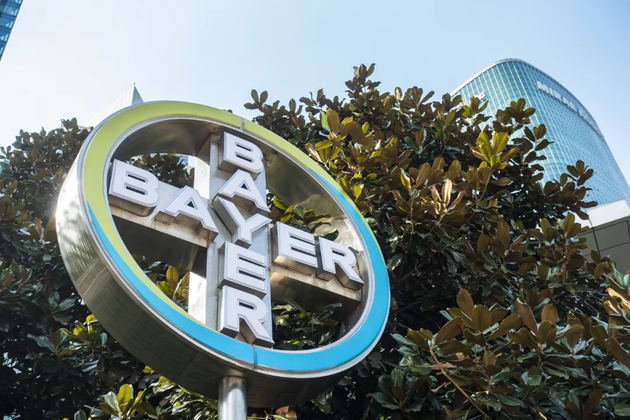
Photo/VCG
Nov. 29 (NBD) -- The U.S. Food and Drug Administration ("FDA") Monday granted accelerated approval to Vitrakvi, a treatment for adult and pediatric patients whose cancers have a specific genetic feature (also called a biomarker).
This is the second time the agency has approved a cancer treatment based on a common biomarker across different types of tumors rather than the location in the body where the tumor originated.
Vitrakvi, generally known as larotrectinib, is developed by Loxo Oncology and Bayer.
Vitrakvi treats a genetic mutation involving neurotrophic receptor tyrosine kinase ("NTRK") genes. Research has shown that the NTRK genes, which encode for TRK proteins, can become fused to other genes abnormally, resulting in growth signals that support the growth of tumors.
Han Baohui, professor at Shanghai Chest Hospital affiliated with Shanghai Jiaotong University, said to NBD that the FDA's move creates a new possibility for the treatment of refractory tumors. The approval of Vitrakvi marks an important step by the FDA toward treating cancers based on their tumor genetics rather than their site of origin in the body, and no matter where the tumor located, it can be treated if there is an identified NTRK gene fusion, Han added.
There are many forms of mutation of NTRK genes and the new drug will take effect when fusion is involved, elaborated Bai Yuezong, director of the strategic marketing department at precision medicine company 3DMed.
Compared with traditional chemotherapy which doesn't know the difference between cancer cells and the normal cells and results in serious side effects, Vitrakvi belongs to targeted therapies which can protect patients from unnecessary side effects.
The efficacy of larotrectinib was studied in three clinical trials where the drug demonstrated a 75 percent overall response rate across different types of solid tumors, and examples of tumor types with an NTRK fusion that responded to larotrectinib include soft tissue sarcoma, salivary gland cancer, infantile fibrosarcoma, thyroid cancer and lung cancer, according to the FDA.

Photo/VCG
But before applying larotrectinib, a patient has to be tested to identify positive NTRK gene fusion, Bai noted. At the current stage, the most accurate and comprehensive testing method is RNA sequencing. Although RNA sequencing hasn't been commonly used in China, yet Bai was bullish on commercialization of such technology, saying that the demand for the drug will draw investment into the research and development of genetic testing.
Research found that an NTRK gene fusion tends to be rare in common cancers and nearly universal in certain uncommon cancers. Based on incidence rate of uncommon cancers, Han estimated that there are 2,000-3,000 NTRK gene fusion cases in the U.S. and 10,000 cases in China.
In an oral capsule form for adults, Vitrakvi will have a wholesale acquisition cost of 32,800 U.S. dollars for a 30-day supply, and a liquid oral formulation for some children and adults will cost 11,000 U.S. dollars a month for certain pediatric patients, Bayer said.
Bai told NBD that clinical trials of Vitrakvi in China will be started in the first half of 2019, citing a source at Bayer.
When asked whether the drug will be included into Chinese health insurance scheme, Wang Zhen, deputy director of the Center for Public Policy Research of the Chinese Academy of Social Sciences, said to NBD that this involves a complicated evaluating process of the drug's efficacy and pharmacoeconomics, affordability of the health insurance scheme and other elements.
Email: gaohan@nbd.com.cn


 川公网安备 51019002001991号
川公网安备 51019002001991号





